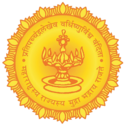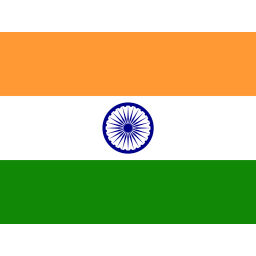Address by Governor at the International Day for Biological Diversity
Address by Shri Ch Vidyasagar Rao, Governor of Maharashtra at the International Day for Biological Diversity organized by the National Biodiversity Authority, Ministry of Environment, Forest and Climate Change and Presentation of the India Biodiversity Awards at Yashwantrao Chavan Auditorium at 6 PM on Sunday 22 May 2016
Shri Prakash Javadekar, Hon’ble Minister of Environment, Forest and Climate Change, Dr B Meenakumari, Chairperson, National Biodiversity Authority, Professor Raman Sukumar, Indian Institute of Science, Bangalore, the UN Resident Coordinator, Dr Vilas Bardekar, Chairperson, Maharashtra State Biodiversity Board, officials, NGOs, members of District Biodiversity Committees, students, staff, ladies and gentlemen,
Good evening and greetings to you.
At the outset, I congratulate Shri Prakash Javadekar Ji, Hon’ble Minister for Environment, Forest and Climate Change for this excellent initiative in organizing the International Day of Biological Diversity in Mumbai and for inviting me to be a part of this memorable day.
It was very thoughtful of the National Biodiversity Authority to have organized the International Day of Biological Diversity on the theme ‘Mainstreaming Biodiversity: Sustaining People and their Livelihoods’.
This programme has given us an opportunity to take pride in India’s rich biodiversity and to reflect on the ways and means to preserve and protect the biodiversity.
Ladies and gentlemen,
India is home to a staggering variety of flora and fauna. The country accounts for more than 91000 species of animals and 45,500 species of plants. But biodiversity does not include flora and fauna alone. Biodiversity includes the variety of all life on the earth including terrestrial, marine and other aquatic systems.
India is fortunate in having incredibly rich diversity in agriculture and medicinal plants.
The agricultural genetic diversity within each species was even more mind-boggling. I read in a research article that one species of rice, collected from the wild, in the distant past, has been diversified by our farmers into 50,000 varieties of rice using innovative ideas.
In the same manner, one variety of mango, was diversified into 1000 varieties of mangoes having different sizes, colour and tastes.
It is interesting to see how agro biodiversity was mainstreamed into people’s conscience by integrating it with religious traditions, seasons, festivals and culture.
I was amazed to note that the Warli tribe in Maharashtra grows a large variety of rice for different water and soil needs for being used in different festivals, marriages and other social events. I believe this is mainstreaming of diversity in the real sense.
India is also rich in traditional and indigenous knowledge of Indian systems of medicines such as Ayurveda, Unani and Siddha.
Ayurveda believes that every plant has its own medicinal value. In this connection, I am reminded of a story from our ancient scriptures.
Many people have heard the name of Susruta, who was a well-known physician and surgeon in ancient times. There was another physician like him. His name was Jivaka. Jivaka was asked by his teacher to bring one herb or leaf with ‘No Medicinal Value’. Needless to say, Jivaka returned empty-handed ! Jivaka could not find a single species of herb or leaf which had no medicinal value !! We have to protect our vast diversity of medicinal plants for the well being of our people.
I would like to inform the Hon’ble Minister that we have developed a biodiversity park on 100 acres of land at Raj Bhavan in Nagpur to preserve and protect the biodiversity of Central India.
It is a thematic biodiversity park where a separate Zone has been created for Medicinal Plants. We have also developed a Cacti garden, a Rose Garden, a Butterfly Garden and so on. We have opened the Biodiversity Park for schools for educational tours. I will urge Shri Javadekar Ji to visit the Biodiversity Park in Raj Bhavan Nagpur during his next visit to Nagpur. We want your guidance to make the Biodiversity Park a role model for the country.
Ladies and gentlemen,
Biodiversity has a direct correlation with people’s livelihood and sustainable development in all areas of activity, including in economic sectors such as agriculture, forestry, fisheries, aquaculture and tourism.
Biodiversity conservation is therefore a pre-condition for achieving sustainable development.
Today, growing population, rapid urbanization and industrialization are exerting tremendous pressure on our natural resources and on the goods and services produced by agriculture, forestry, fisheries and other sectors.
Drastic climatic changes witnessed in the country are posing serious challenges like droughts and floods leading to loss of biodiversity. Two days ago, the temperature in a Rajasthan town was 51 degree !! Needless to say, India needs a comprehensive policy to tackle the global climatic changes to protect the life and livelihood of our people and to protect biodiversity.
It is estimated that the demand for food, wood, water and energy will almost double by 2050 due to increasing population, average wealth and changing consumption patterns. This will have a negative effect on biodiversity.
In order to produce more food grains, only a few high yielding varieties of paddy and wheat are grown on maximum land under these crops. As a result, traditional varieties are being lost. Farmers are lured to use chemical fertilizers and pesticides, causing adverse impact on the quality of food, health of humans, birds and animals.
We need a partnership between the governments, business organizations, agricultural research institutions, NGOs and farmers to meet the challenge of food security while also of preserving our biological diversity.
This year, Marathwada is witnessing unprecedented drought on account of failure of monsoon and depletion of groundwater tables. Conserving water, maintaining our water bodies clean and managing our water resources judiciously will be critical to sustain the life and livelihood of people as also to maintain biodiversity.
Destruction of forest in the country should concern us all. Between 1990 and 2015, the total forest area in the world declined by 3 per cent and India is among the countries which are losing their forest cover faster than others.
Time has come, to make biodiversity preservation, a people’s movement. We are a nation with highest number of youths. We must make youths stakeholders in the effort to preserve our biodiversity. I do feel that the International Day of Biological Diversity should be celebrated in villages, towns and cities, in Village Panchayats and in Municipal Corporations. This day should also be celebrated in all schools and colleges to sensitize the students about biodiversity and the impending threats to it. We must persuade the Corporate Sector to take-up, conservation of biodiversity as part of their social responsibility obligation.
For centuries and ages, our forest-dwelling communities nurtured forests and preserved biodiversity. They are truly the warriors of biodiversity. We have to strengthen their hands and support them to preserve our forests.
Empowering Gram Sabhas in the Scheduled Areas will go a long way in preserving biodiversity. We must provide incentives to Gram Panchayats preserving biodiversity and empowering communities.
As Chancellor of Agricultural universities in Maharashtra, I am going ask all Vice Chancellors to take up the subject of biodiversity on the top of their agenda.
Four centuries ago, Sant Tukaram dreamt of creating a world where flora and fauna will be treated as our relatives. He said:
वृक्ष वल्ली आम्हा सोयरी l वनचरे, पक्षी ही सुस्वरे आळविती ll
These lines can serve as a guiding beacon for humanity in preserving biodiversity.
I am very happy that the India Biodiversity Awards instituted by the Ministry of Environment, Forest and Climate Change and UNDP India to recognize the contribution of a range of stakeholders towards conservation of biodiversity are being presented today.
I congratulate all the awardees who were honoured today. I also convey my appreciation to the Jury members who selected the awardees. I wish the organizers success in their future endeavours.
Thank you.
Jai Hind ! Jai Maharashtra !!



